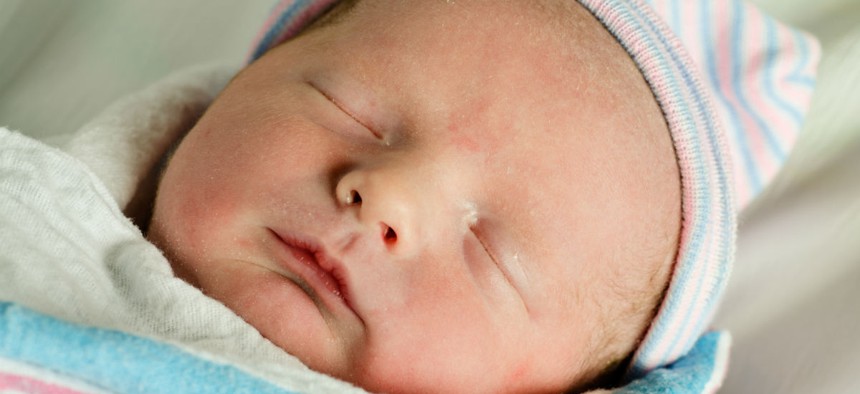
Rob Hainer / Shutterstock.com
Feds Would Get Six Weeks of Paid Parental Leave Under Bill
The bill would not require federal employees to dip into their accrued sick or annual leave to care for a new child.
This story has been updated.
Federal employees would receive six weeks of paid parental leave to care for a new child under a bill introduced in the Senate Tuesday afternoon.
Sens. Brian Schatz, D-Hawaii, and Barbara Mikulski, D-Md., introduced legislation that would give federal workers six weeks of paid administrative leave after the birth, adoption or foster placement of a child. The bill would not require federal employees to dip into their accrued sick or annual leave to care for a new child.
"While private companies are beginning to see the benefits of providing paid family leave, America is still the only industrial nation in the world without a program that gives working parents the time off and income they need to care for a new child,” said Schatz.
Right now, the 1993 Family and Medical Leave Act provides up to 12 weeks of unpaid leave to most government and private sector workers for the birth or adoption of a child, or to care for seriously ill family members. Federal employees who give birth or adopt can tap their accrued sick and annual leave to avoid three months without a paycheck, but many bristle at having to use hard-earned leave when paid parental leave is becoming more prevalent in the private sector.
The senators' legislation will be a companion bill to one that Rep. Carolyn Maloney, D-N.Y., introduced in January.
“This is embarrassing,” Maloney said during a press conference when she introduced the House version of the bill, referring to the lack of paid parental leave. “I would say that it is shameful, and it’s a disgrace.” Maloney has been introducing legislation since 2000 that would provide some paid time off for new federal parents. The House has passed the legislation twice during the past 13 years, but it has languished in the Senate.
Federal employee advocates, including the American Federation of Government Employees, the National Treasury Employees Union, and the National Active and Retired Federal Employees Association praised Schatz and Mikulski for introducing the bill.
“This commonsense piece of legislation should be acted on swiftly,” said NARFE President Richard Thissen.
Lawmakers have said repeatedly the legislation would not add anything to the deficit. A Congressional Budget Office score of the bill from the 111th Congress found the new benefit would not create any direct spending, although the annual value of the paid time off was $140 million for four weeks and $209 million for eight weeks. Maloney and her colleagues stressed that while employees were on parental leave, other workers would simply have to pick up the slack.
President Obama in January directed agencies to advance federal employees up to six weeks of paid sick leave to care for a new child or ill family members. The presidential memorandum expanded the current unpaid family leave benefit – something feds and advocates of government workers have been urging for years. The memo “will allow mothers the opportunity to recuperate after child birth, even if they have not accrued enough sick leave. It will also allow spouses and partners to care for mothers during their recuperation periods and will allow both parents to attend proceedings relating to the adoption of a child,” stated a White House fact sheet.
At that time, Obama also proposed legislation, which Maloney introduced about a week later, giving federal workers six weeks of paid administrative leave for the birth, adoption or foster placement of a child.
Between the memo and the proposed legislation, Obama is advocating for 12 weeks total of paid leave for federal workers from two different leave banks – sick and administrative. Federal workers accrue sick leave as a benefit; administrative leave is an excused absence from work.
Obama’s push for paid parental leave is part of a larger agenda to strengthen the middle class by giving families more work-life flexibility.
“Certainly the federal government should be setting an example for the rest of the country, an example for the world,” said Maloney in January, who stood next to a world map that showed the United States and Papua New Guinea were the only countries on Earth, according to the United Nations, that do not offer paid parental leave. “We’re supposed to progressive. We’re supposed to be leaders.”
Eric Katz contributed to this story.
(Image via Rob Hainer / Shutterstock.com)







